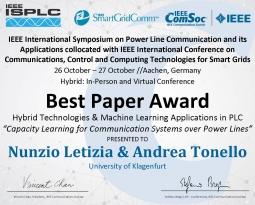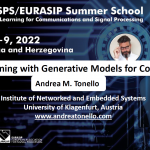Optimal data detection and decoding in known channels is a well studied topic whose solution is given by the maximum a posteriori probability (MAP) criterion, which is optimal in a minimum error rate sense. But what happens when we do not know the channel, and even worse when we do not have any idea of the channel model ? Then, learning the model becomes a key objective. In addition, the question is whether we can formulate an optimal decoding criterion that implicitly learns the model. The answer is positive and the solution is found by working on the most relevant and fascinating information theory quantity, i.e., mutual information. In [1], we have derived a novel and optimal maximum mutual information based decoder for unknown channels (MIND). Two neural network based architectures are described. Contrarily to the heuristic neural approaches in the communications context described in the literature, the optimality of MIND is proved. Numerical results validate the stochastic treatment of the problem.
Further readings
[1] A. Tonello, N. Letizia, “MIND: Mutual Information Based Neural Decoder,” IEEE Communications Letters, 2022.






